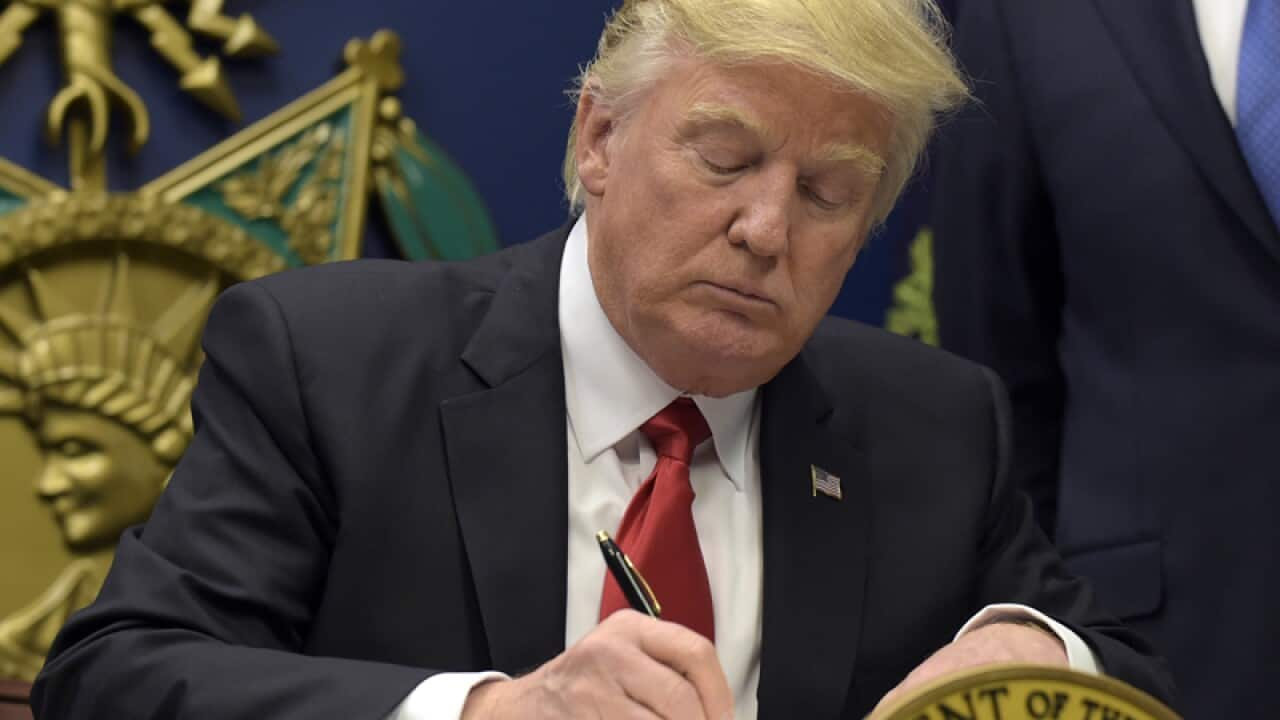French President Francois Hollande vowed a "firm" response to a growing list of pronouncements by the maverick tycoon, including his encouragement for Brexit and suspension of all refugee arrivals.
"We must conduct firm dialogue with the new American administration which has shown it has its own approach to the problems we all face," the French leader said after a meeting of southern EU countries in Lisbon, flanked by fellow leaders.
Another EU founder member, Luxembourg, also said Trump risks bolstering "hatred towards the West" by slapping tight new controls on travellers from seven Muslim countries including war-wracked Syria.
Hollande spoke out a day after Trump - who has made clear he thinks other EU countries will leave the bloc - called Britain's decision to leave the European Union a "wonderful thing".
"When he talks about Brexit being a model for other countries, I think we must respond," he said, adding that Trump's "protectionist" measures could "destabilise economies not just in Europe but the economies of the main countries of the world".
'Hatred'
Trump has announced a series of controversial decisions, making good on what some thought may have been electioneering campaign pledges, on an almost daily basis since taking office on January 20.
British Prime Minister Theresa May, whose country voted to leave the EU last June plunging the bloc into an unprecedented crisis, became the first world leader to meet Trump in Washington on Friday.
Keen to forge a post-Brexit trade deal with the United States and other countries, she refused to condemn Trump's refugee suspension Saturday.
"The United States is responsible for the United States' policy on refugees" she said when repeatedly pressed on the issue at a press conference in Turkey.
But other EU countries have different priorities, and are making their concerns clear.
Luxembourg Foreign Minister Jean Asselborn condemned the tougher visa measures slapped on seven Muslim states: Iran, Iraq, Libya, Somalia, Sudan, Syria and Yemen.
"The decision is ... bad for Europe, because it's going to strengthen even further the mistrust and hatred towards the West in the heart of the Muslim world," he told the Sunday edition of German daily Tagesspiegel, excerpts of which were released a day in advance.
The first concrete cases emerged Saturday of US-bound travellers being turned back due to the new visa arrangements.
In Cairo an Iraqi family bound for New York was stopped, while some who were already in the air when Trump signed the executive order were detained on arrival, the New York Times reported.
The French and German foreign ministers meanwhile voiced "concern" about Trump at talks in Paris.
"Welcoming refugees who are fleeing war is part of our duty," France's Jean-Marc Ayrault said following a meeting with his new German counterpart, Sigmar Gabriel.
'Concern'
"This decision can only cause us concern. But there are a lot of other issues that are causing us concern," Ayrault, with Gabriel at his side, said.
Gabriel, whose country has welcomed hundreds of thousands of migrants, added: "For us it's important that Germany and France visibly and in substance share joint positions as widely as possible."
Trump held telephone talks Saturday with world leaders including German Chancellor Angela Merkel - whose decision to admit so many migrants he called a "catastrophic mistake" - and Russian President Vladimir Putin. He was due to talk to Hollande later in the day.
Trump has alarmed European leaders with his positive comments on Putin, and has left open the possibility of lifting sanctions on Russia despite Moscow's annexation of Crimea and role in the Ukraine conflict.
Europe is firmly against this. The French and German ministers reiterated Saturday that any easing of sanctions on Moscow must be linked to the implementation of the Minsk Agreement signed in February 2015.
Related reading

Iran says will respond in kind to Trump's 'insulting' ban















